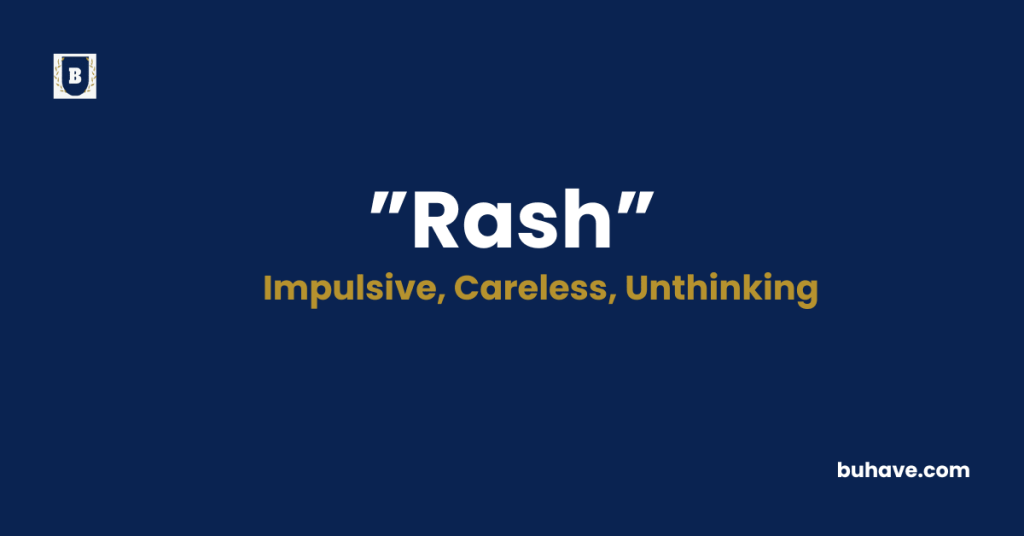The word “Rash” (adjective) describes actions or decisions made quickly and without careful thought, often leading to negative consequences. In this guide, you’ll learn the full definition, synonyms, antonyms, etymology, and real-life examples of how to use Rash correctly in sentences.
Rash Explained in Depth
A complete and detailed guide to the word Rash including meaning, definition, examples, etymology, synonyms, and antonyms.
Meanings of Rash
Rash means acting without thinking or considering the consequences, often in a reckless or hasty manner. It describes behavior or decisions that are impulsive and can lead to undesirable outcomes.
Definition
Rash refers to doing something quickly and without due deliberation, typically with negative results. It implies carelessness, overconfidence, or emotional impulsiveness in one’s actions or judgments.
Etymology
The word rash comes from the Middle English rasch, meaning “impetuous or hasty,” and is related to Old High German rasch meaning “quick or eager.”
Its roots convey a sense of speed and recklessness that has carried over into modern usage.
Example Sentences
- Making a rash decision in anger can lead to regret later.
- His rash investment cost him thousands of dollars.
- She was criticized for her rash comments during the meeting.
Rash Synonyms
- Impulsive
- Reckless
- Hasty
- Careless
- Foolhardy
- Hotheaded
- Precipitate
- Unthinking
- Ill-considered
- Overhasty
Rash Antonyms
- Careful
- Prudent
- Thoughtful
- Cautious
- Measured
- Wise
- Considerate
- Deliberate
- Judicious
- Sensible
FAQs about Rash
Here are some Frequently Asked Questions (FAQs) about the word “Rash”
1. What does “rash” mean in behavior?
It means acting too quickly without thinking about the consequences, often leading to mistakes.
2. Is “rash” always negative?
Generally, yes. It implies poor judgment and lack of consideration for outcomes.
3. Can “rash” describe speech?
Yes, saying something without thinking it through can be considered a rash remark.
4. What’s the difference between “rash” and “impulsive”?
They are similar, but “rash” often implies a more dangerous or reckless consequence.
5. Is “rash” used in formal writing?
Yes, it can be used in both formal and informal contexts to describe poor judgment.






